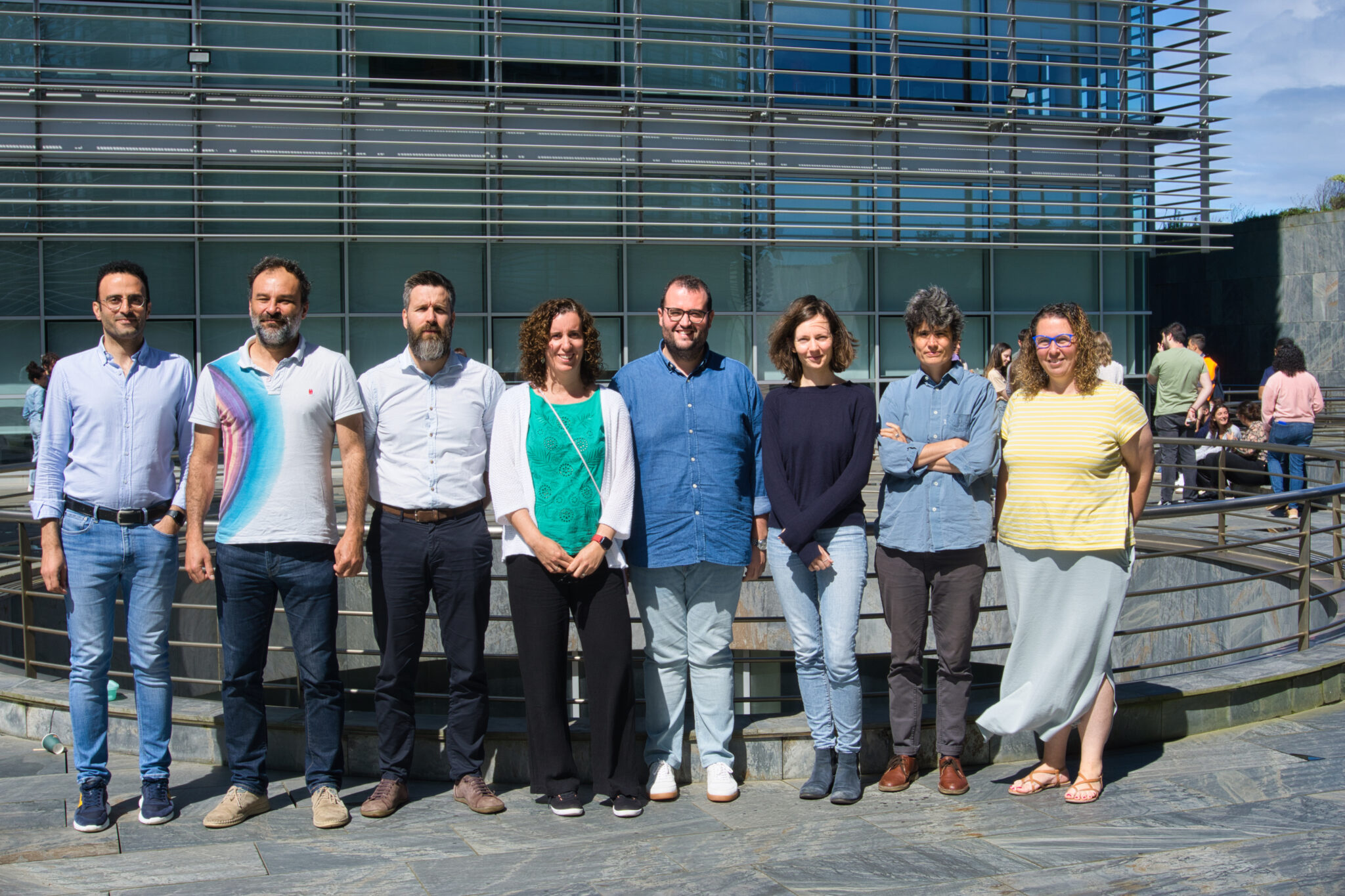IHCantabria celebrates the launch of the European WaMA-WaDiT project, which will contribute to improve resilience, adaptation and mitigation of extreme hydroclimatic events
This event marks the beginning of a 36-month collaborative effort aimed at addressing the impact of climate extremes on water management systems through the development of digital watershed twins
On June 18 and 19, the Environmental Hydraulics Institute of the Universidad of Cantabria (IHCantabria) hosted the kick-off meeting of the European project entitled ‘Water Management and Adaptation based on Watershed Digital Twins’ (WaMA-WaDiT), which in Spanish is called ‘Gestión de Recursos Hídricos y Adaptación basada en Gemelos Digitales de Cuencas’.
This project ─in which French, Italian and English entities participate as partners─ will contribute to improve resilience, adaptation and mitigation of extreme hydroclimatic events ─such as floods and droughts─, by improving the capacity to predict and simulate water resources systems, through digital twins of river basins.
It is coordinated by IHCantabria and the University of Cordoba, the University of Bristol, the Università degli studi di Trento, the Institut Polytechnique de Grenoble, Bureau de Recherches Géologiques et Minières (BRGM) and the Antea Group participate as associated institutions. The Spanish Research Agency is financing the execution of this project for Spanish entities, within the framework of a European partnership called WATER4ALL. Entities in other countries receive funding from their respective research agencies.
“One of the main objectives is to improve the understanding of the effects that climate extremes have on water management systems, focusing on both single and multiple reservoir systems,” explained WaMA-WaDiT project coordinator Manuel del Jesus, who is a full professor at the Universidad de Cantabria (UC) and head of the Hydroclimatology Group at IHCantabria. Another objective is to translate the most advanced scientific ideas into useful tools and strategies to support decision making, and to develop a methodology and an easy-to-use software tool to facilitate the creation of digital twins of specific watersheds.
Based on models of hydrological systems and water resources, developed in partner institutions, we will advance in the representation of natural and regulated hydrological systems in digital twins of hydrographic basins. In particular, it is planned to represent the interactions between surface and groundwater flows, and to incorporate complex snow dynamics in hydrological models ─in present and future climate scenarios─, especially in Mediterranean mountainous regions.
For the implementation of this project, the WaMA-WaDiT project team plans to work with water agencies from different countries to test the use of digital watershed twins and to support the practice of water management, particularly in poorly monitored areas, and to improve communication and uncertainty management in those areas. There are also plans to develop free and open source software tools to help quantify and assess risk, as well as to inform operational decisions in the short term and adaptation actions in the long term.
Kick-off meeting held at IHCantabria
Thekick-off meeting The project was carried out with the participation of experts from the various partner institutions. Yvan Caballero participated on behalf of BRGM; Rafael Pimentel and Raquel Gómez, from the University of Córdoba; Francesca Pianosi, from the University of Bristol; Giuseppe Formetta, from the Università di Trento; and Louise Crochemore, from the Université Grenoble Alpes. The meeting was hosted by the project coordinator, Manuel del Jesus, and Patricia Bueno, who is a member of the European Projects Section of IHCantabria.
“My expectations are very good. I think we are going to do a very good job, since we are all pursuing similar objectives, based on a very similar understanding of what knowledge generation should be. We are all convinced that this can improve the practical activity of decision-makers and I am very optimistic about the development of this project,” said Manuel del Jesus.
The WATER4ALL European partnership aims to bring together researchers, policy makers and industry to address water-related challenges and ensure sustainable water management across Europe. This inter-institutional collaboration reflects the European dimension of the project and its integrated approach to addressing the challenges of climate change in water resources management.

From left to right: Giuseppe Formetta (Università di Trento), Yvan Caballero (BRGM), Manuel del Jesus (IHCantabria), Raquel Gómez and Rafael Pimentel (University of Córdoba), Louise Crochemor (Université Grenoble Alpes) and Francesca Pianosi (University of Bristol), and Patricia Bueno (IHCantabria)





